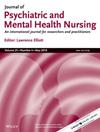Nursing in the digital age: The role of nursing in addressing cyberbullying and adolescents mental health
Abstract
The Relevance of Our Study to Mental Health Nursing
1.1 What is known on the subject?
- The study's findings are crucial for mental health nursing, as they highlight the significant impact of cyberbullying on adolescents' mental health in Egypt.
1.2 What this paper adds to existing knowledge?
- By establishing a clear link between cyberbullying, family income, and mental health issues such as anxiety, stress, and depression, the research underscores the need for targeted interventions and support systems.
1.3 What are the implications for practice?
- Mental health nurses can utilize this information to develop effective prevention and treatment strategies, advocate for policy changes, and educate families and communities.
- Addressing cyberbullying and its effects can lead to improved mental health outcomes, demonstrating the critical role of mental health nursing in supporting affected adolescents.
Summary Statement of Implications for Practice
What Does This Research Add to Existing Knowledge of Cyberbullying Among Adolescents?
- This study brings attention to the widespread occurrence of cyberbullying among adolescents in Egypt and its substantial impact on their mental health. The research indicates that cyberbullying, along with family income, collectively explains more than 60% of the variation in mental health. These results underscore the importance of developing strategies to address cyberbullying and taking socioeconomic factors into account when addressing mental health issues in adolescents.
What are the Implications of This New Knowledge for Nursing Care with Adolescents?
- School nurses should be knowledgeable about the prevalence and effects of cyberbullying on the mental well-being of teenagers. They need to be equipped to recognize signs of cyberbullying and associated mental health issues, such as anxiety, depression, and stress.
- Educating adolescents, parents, and school staff about the dangers of cyberbullying and prevention methods is a crucial role that school nurses can play. This may involve teaching safe internet usage, promoting open communication about online experiences, and encouraging positive online behaviour.
- When evaluating mental health needs and planning care for adolescents, school nurses should consider their economic status. They should advocate for resources and assistance for low-income families to help alleviate the impact of financial stress on mental health.
How Could the Findings Influence Policy, Practice, Research, or Education?
- It is important to introduce policies that provide financial support to families with lower incomes, as the research has shown a strong connection between a family's monthly income and its members' mental well-being.
- Educational institutions, including schools, should introduce programs to prevent bullying, with a specific focus on cyberbullying.
- It would be beneficial for researchers to explore the effectiveness of various interventions in reducing cyberbullying and improving mental health outcomes.
- It is crucial to integrate education on cyberbullying into school curricula in order to raise awareness about this issue and to teach students how to respond if they or someone they know becomes a victim of cyberbullying.
- Educating parents and teachers about the indicators of cyberbullying and its potential impact on mental health is important so that they can offer support to adolescents who are experiencing cyberbullying.
- Further research is needed to address other covariates that could impact cyberbullying, such as addictive personality traits, impulsive seeking behaviours, and parenting styles.
Background
Cyberbullying, a significant concern in today's digital age, has a profound impact on teenagers' mental health, leading to stress, depression, anxiety, low self-esteem, and, in severe cases, suicidal ideation. This study aimed to explore the effects of cyberbullying on adolescents' mental health.
Methods
The study employed a cross-sectional descriptive research design conducted at five public secondary schools in El-Beheira governorate, Egypt. A total of 500 students were selected through a multistage sampling technique, yielding a response rate of 96%. The instruments used for data collection were the European Cyberbullying Intervention Project Questionnaire and the Depression Anxiety Stress Scale-21.
Results
The findings revealed that 27.4% and 32.0% of respondents reported high levels of victimization and cyberaggression, respectively. Furthermore, 72.2%, 44%, and 52.6% of students exhibited severe to extremely severe levels of anxiety, stress, and depression, respectively. The study also found that cyberbullying and family monthly income accounted for 61.6% of the variance in stress, anxiety, and depressive symptoms (adjusted R2 = .614).
Conclusion
The study concludes that cyberbullying is a prevalent issue among adolescents in Egypt, with a majority of students experiencing moderate to high levels of cybervictimization and aggression. This leads to varying degrees of anxiety, stress, and depression. The study also established a significant relationship between cyberbullying and mental health issues among adolescents. Moreover, both cyberbullying and family monthly income were found to significantly influence mental health, with higher levels of cyberbullying and lower income associated with increased stress, anxiety, and depressive symptoms.
Patient or Public Contribution
No Patient or Public Contribution.
Implications for Nursing Practice
It is important for nurses working with adolescents to have an understanding of how common cyberbullying is and how it can affect mental health. They should receive training to be able to recognize signs of cyberbullying and mental health issues, such as anxiety, depression, and stress. Nurses can teach adolescents, parents, and school staff about its dangers and ways to prevent cyberbullying. This may involve educating adolescents on safe internet practices, promoting open communication about online experiences, and encouraging positive online behaviour. Lastly, considering the strong connection between income and mental health, nurses should also take into account the socioeconomic status of adolescents when assessing their mental health needs and planning care. They should work to secure resources and support for low-income families to help alleviate the impact of financial stress on mental health. Additionally, further research is needed to address other covariates that could impact cyberbullying, such as addictive personality traits, impulsive seeking behaviours, and parenting styles.

 求助内容:
求助内容: 应助结果提醒方式:
应助结果提醒方式:


